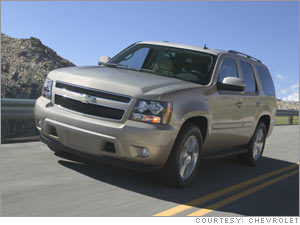E85 contains less energy per gallon than gasoline so when sensors in the engine detect that ethanol is being burned they adjust by, among other things, pumping more fuel into the engine. Because of this, vehicles will get about 15 percent lower fuel mileage when burning E85 rather than gasoline.
For now, at least, E85 is almost impossible to find at gas stations outside the central Midwest. Until E85 becomes more widely available, most flex-fuel vehicles will just burn gasoline.
Purchase costs: Adds no cost to the vehicle
Efficiency: When running on gasoline, no difference. When running on ethanol, fuel efficiency is reduced by about 15 percent
Fuel costs: The cost if E85 fluctuates independently of gasoline but, at the moment, it costs less. Because of E85's poorer fuel economy, though, using E85 exclusively would cost you several hundred dollars more per year, based on EPA estimates.
Performance: No difference when running on gasoline. When running on E85, the vehicle will have a small increase in peak horsepower, but the difference will be undetectable to most drivers.
Greenhouse gases: No difference when running on gasoline; Since a vehicle needs to burn more fuel when running on E85, more CO2 is released. However, there should be little net production of CO2, theoretically, at least, since burning plant-based ethanol releases only carbon that had recently been absorbed by the plants used to make the fuel.
Other pollution: E85 burns more cleanly than gasoline so, in spite of burning more fuel per mile, produces about the same amount smog-forming pollutants as gasoline.
The future: Cellulosic ethanol, which could be made from plant parts not normally used for food, could greatly increase the supply of ethanol, which may allow it to supplant a significant portion of the petroleum-based fuel now used in cars.

